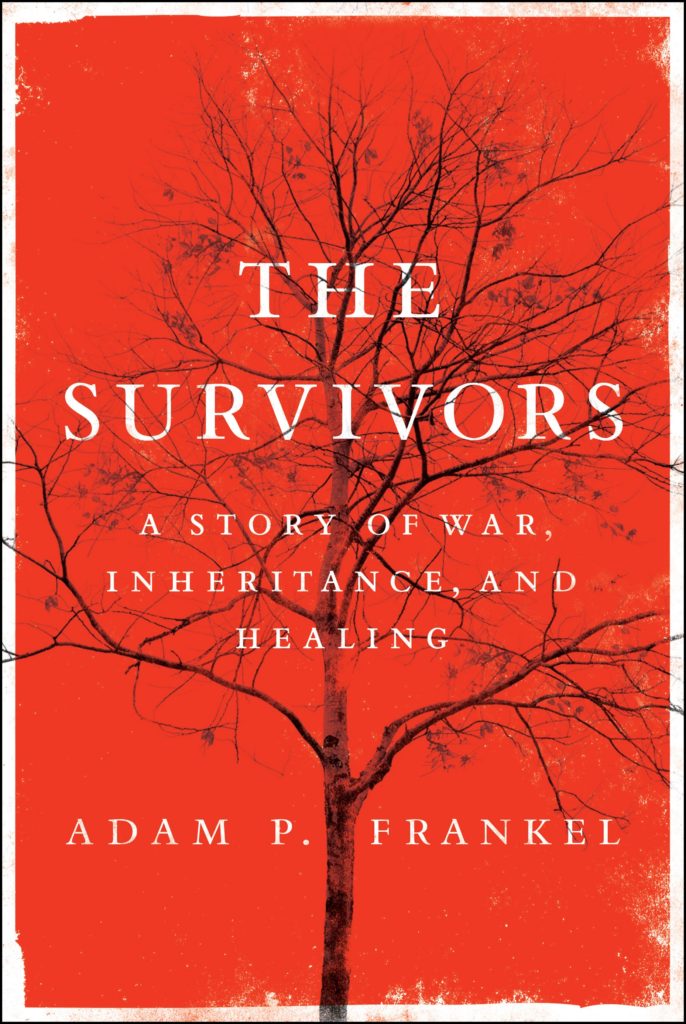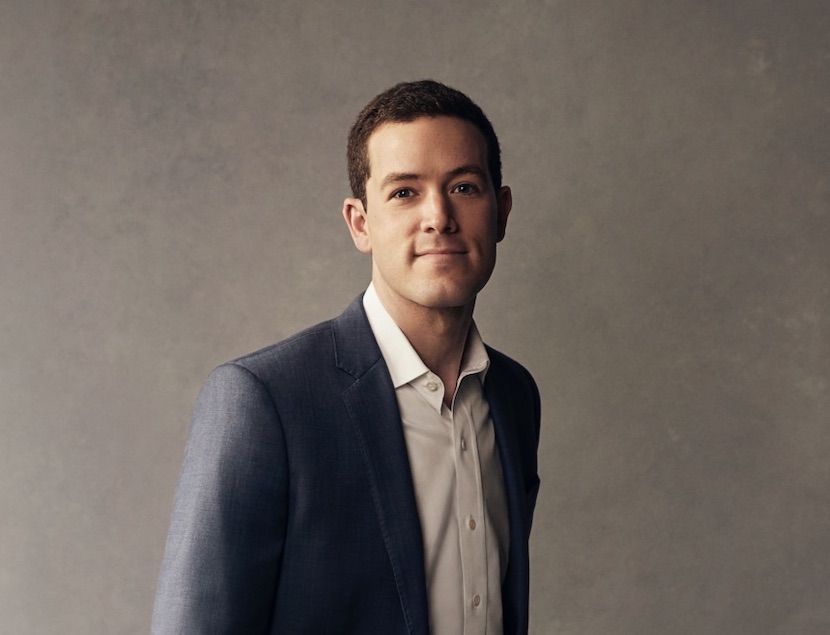A former presidential speechwriter pens a captivating memoir about the generational transmission and transmutation of trauma.
By B.K. Jackson
 When he was only 25 years old and working as a speechwriter for Barack Obama, Adam Frankel learned a searing truth about himself—one his mother intended him to live his days without knowing.
When he was only 25 years old and working as a speechwriter for Barack Obama, Adam Frankel learned a searing truth about himself—one his mother intended him to live his days without knowing.
Secrets, he says, were “something of a family tradition.” His mother, who suffered from an ill-defined mental illness and who at least once tried to take her own life, refused in his youth to tell him why she and his father divorced before he was five years old. As an adult, he pushed back on his mother’s reluctance to share this family history, until finally the truth came out: his dad was not his biological father.
“I wanted to climb out of my skin,” he recalls. “I felt disembodied. I looked down at my legs, arms, hands. All of it suddenly felt so unfamiliar, like I was inhabiting a stranger’s body.” He was, in that instant, “undone.”
“The Survivors: A Story of War, Inheritance, and Healing” traces Frankel’s agonizing quest to find and come to terms with his truth—to heal what he describes as a rupture in his heart.
The reverberations of the revelation were shattering. His mother’s betrayal, coupled with her refusal to understand its effect on him, strained their relationship, which led to acrimonious encounters with extended family members. Unaware of the truth, they perceived his anger toward his mother as mistreatment and berated him repeatedly for being something less than a good son. Out of loyalty to them and his parents, he kept his mother’s secret from them and “took it on the chin.” More tormenting, he kept the secret from his loving dad and paternal grandparents—his fear not so much that they wouldn’t still love him, but something subtler, that they might look at him somewhat differently. All this, combined with the stress of staring down an identity crisis for which he was wholly unprepared, took a toll on Frankel, disrupting his interpersonal relationships, causing insomnia, ratcheting up rage and anxiety, and—as panic attacks and inexplicable physical symptoms arose—threatening his health.
Like Dani Shapiro’s “Inheritance: A Memoir of Genealogy, Paternity, and Love,” Frankel’s “The Survivors” is an exquisitely wrought, heartrending memoir that lays bare the heartache generated by the discovery that one isn’t who one thought oneself to be. These books—perhaps unsurpassable yet no doubt the vanguard of an inevitable wave of literary memoirs about genetic identity crises—are aching, penetrating self-portraits of individuals overwhelmed by a sense of betrayal, whose identities were fractured in an instant, and who lived both with the agonizing pain of discovery and the unbearable weight of secrets.
While misattributed parentage is front and center in “Inheritance,” it’s only part of the larger story of “The Survivors.” Frankel takes a longer view and focuses his memoir not only on his own discovery, but also on a cataract of trauma that began in another country, in another time, and cascaded from generation to generation. He begins by writing about his maternal grandparents—his beloved Bubbie and Zayde—and their harrowing experiences as Holocaust survivors. His grandfather, who witnessed unspeakable brutality and more than once used subterfuge to save his own father from certain death in concentration camps, survived Dachau. And his grandmother spent much of the war years in the woods near Poland with a brigade of Jewish resistance fighters. They emigrated to America and settled in Connecticut, all the while guarding a secret concerning their own identities.
Years later, as Frankel struggled to make sense of his mother’s illness, her behaviors, and her treachery in light of his knowledge about the cataclysm of the Holocaust and the fraught environment in which she had been raised, he began to see the intrusion of the past into the present and followed the tender threads that stitch one trauma to another and another over decades. Looking into the eyes of his grandfather, he asked himself, “Was the trauma that he and Bubbie endured all those years ago at the root of everything? Had it in some way contributed to the troubles that had plagued my mother all her life? Somehow created the circumstances that were wreaking such havoc in my life?” He sought answers to these questions, researching and interviewing experts in the fields of PTSD, epigenetics, and intergenerational trauma, asking “Had the Holocaust left some sort of genetic stamp on my family? On me?”
Frankel’s elegant prose renders truth into beauty and elevates pain to art as he explores how we carry with us, often unknowingly, the pain, shame, and sorrows of our progenitors. He laments the fact that the stories of the elders, particularly those of Holocaust survivors, are becoming lost to time. “And yet,” he says “something of history’s witnesses remains even after they depart. Something of what they endured outlives them. Their trauma does not, like them, turn to dust. It is bequeathed to us, their descendants, a part of our inheritance.”
While we may stand on the shoulders of those who came before us, we also carry forth their wounds and scars, and we’re faced with the burden of how to integrate inherited traumas into our lives.
“The Survivors” is a curative for the notion that intergenerational trauma is inevitably crippling, that it somehow strips us of free will and tethers us to the suffering of our ancestors. Ultimately, the book is extraordinarily hopeful. Frankel assesses the cost of the secrets kept from him and the secret he kept and lands at two inescapable truths—families can be the source of both the deepest pain and the most profound relief, and the wounds inflicted by family can also be healed by family.
The book’s takeaway, particularly for anyone affected by misattributed parentage, is that forgiveness and self-expression are the twin paths to healing. Ingrained in him, Frankel came to understand, were not merely his ancestors’ traumas, but also their hope and resilience, which led him back to himself. “I’d begun to hear my own inner voice,” he says, “clear and unmistakable, whispering to me once again.”
For more about Frankel and “The Survivors,” look for a video on the homepage sidebar.

